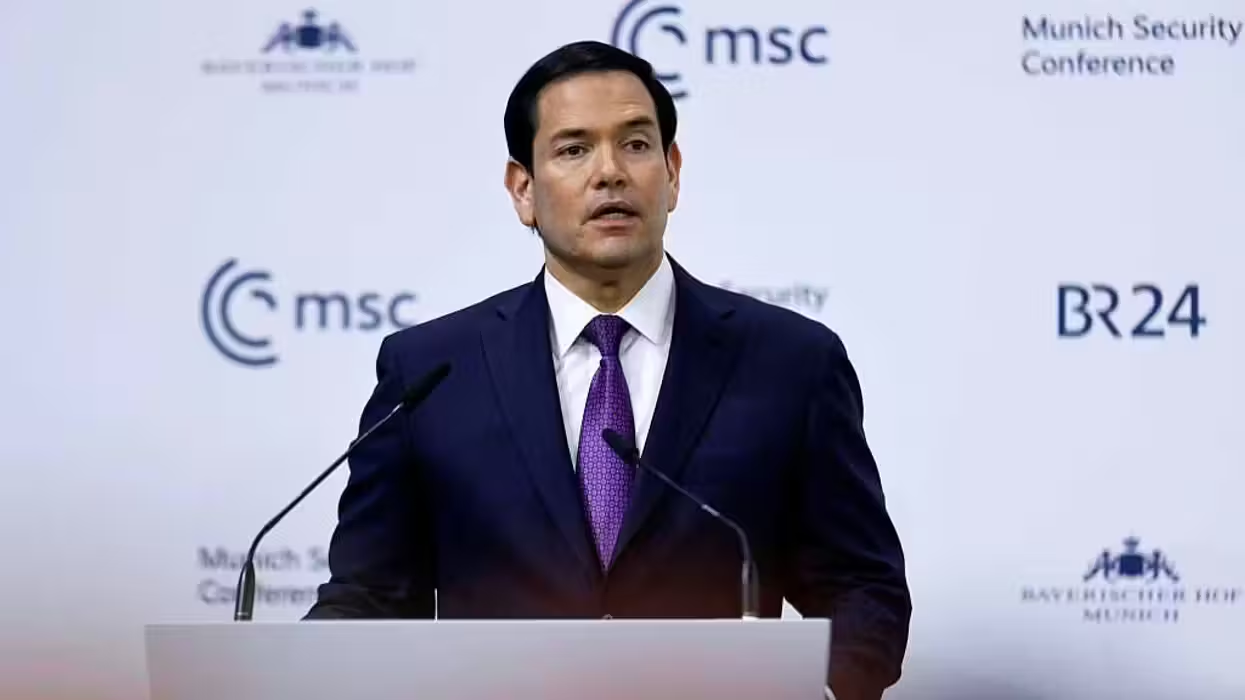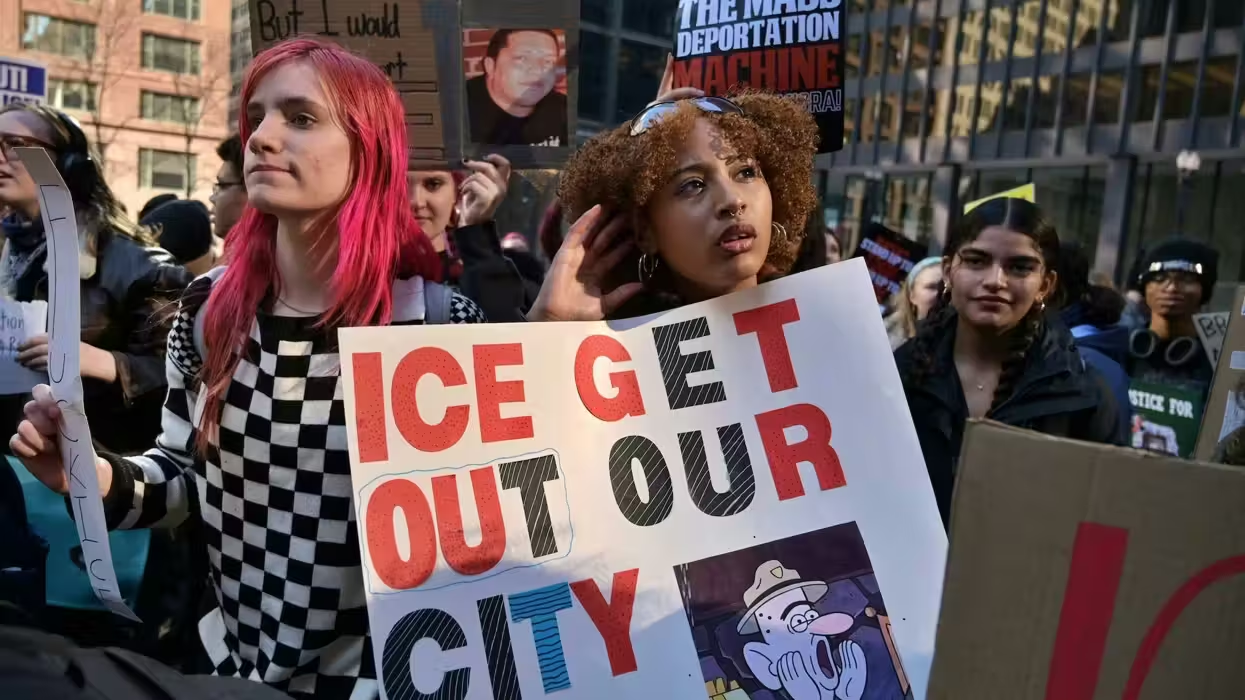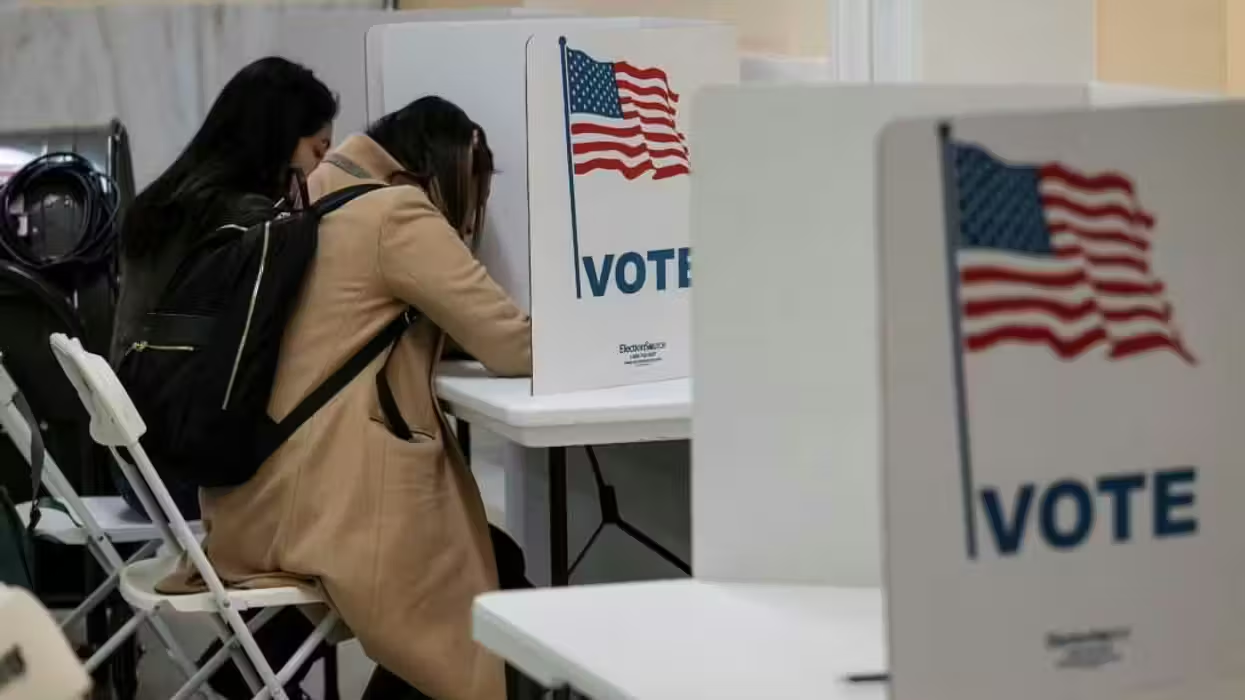
© 2026 Blaze Media LLC. All rights reserved.
Crisis': American Students Fail Basic Civics Test That Most Immigrants Could Pass
May 06, 2011
According to a test administered by the Department of Education, most eighth graders do not know what the purpose of the Bill of Rights, nor do they understand what checks and balances. At the same time, high school seniors---who are about to enter into full citizenship as voters in this country---"were unable to demonstrate civic skills such as identifying the effect of U.S. foreign policy on other nations or naming a power granted to Congress by the Constitution," according to a report.
"Today's NAEP results confirm that we have a crisis on our hands when it comes to civics education," said former Supreme Court Justice Sandra Day O'Connor, who last year founded icivics.org, a nonprofit group that teaches students civics through Web-based games and other tools.
The Department of Education administered the tests, known as the nation's report card, to 27,000 fourth-, eighth- and 12th-grade students last year. Questions cover themes including how government is financed, what rights are protected by the Constitution and how laws are passed.
Average fourth-grade scores on the test's 300-point scale rose slightly since the exam was last administered, in 2006, to 157 from 154. Average eighth-grade scores were virtually unchanged at 151. The scores of high school seniors -- students who are either eligible to vote or about to be -- dropped to 148 from 151. Those scores mean that about a quarter of 4th- and 12th-grade students, and about one-fifth of eighth-graders ranked at the proficient or advanced levels.
Though these tests results may surprise most Americans, they are unlikely to surprise those at the Intercollegiate Studies Institute, a conservative organization aimed at education the youth on issues such as civics, political philosophy, and literature.
ISI has published a Civic Literacy report whose key findings echo those of the Department of Education's test:
· America's Colleges and Universities Fail to Increase Knowledge About America's History and Institutions· College Seniors Fail Basic Tests on America’s History and Institutions
· Students at America’s Most Prestigious Universities Performed the Worst
· While College Fails to Adequately Transmit Civic Knowledge, It Influences Opinion on Polarizing Social Issues
· Compared to College, Civic Knowledge Exerts a Broader and More Diverse Influence on the American Mind
ISI makes a good point---the same young voters who do not understand the civic principles animating the Constitution and the U.S. government also voted for Barack Obama in droves.
In the 2008 presidential election, Barack Obama defeated John McCain in the popular vote roughly 53% to 46%. While there were many factors that contributed to President Obama's historic victory, a decisive one certainly had to be the turnout rate and voting behavior of the youth. Historically, the 18 to 29-year-old demographic has been a notoriously unreliable voting bloc, averaging between 30% and 40% turnout for presidential elections from 1952–2000. However, voter turnout for younger voters reached 51% in 2008, and their share of the total electorate reached 18%—both historic highs. Furthermore, 18 to 29-year-olds voted overwhelmingly for President Obama, by a margin of 68% to 30%. When taken together, both the elevated turnout and Democratic character of the youth vote added a net increase of 7 percentage points to President Obama's overall margin of victory, which accounted for his entire electoral advantage over John McCain.
We begin our discussion of collegiate civic engagement with the 2008 youth vote (knowing that not all younger voters attend college), because it provides a useful prism by which to evaluate not only college's impact on political participation, but also its impact on public opinion, partisanship, and civic knowledge—the focus of ISI's previous civic literacy reports. In 2008, ISI's survey of 2,508 adults discovered that college graduates on average not only failed our civic literacy exam, but that an expensive college degree actually adds less to a graduate's overall level of civic knowledge than certain examples of civic self-education when combined together, like frequently reading and discussing history and current events an average of fifteen hours per week.
Want to test your own civic literacy? Take ISI's test here.
Want to leave a tip?
We answer to you. Help keep our content free of advertisers and big tech censorship by leaving a tip today.
Want to join the conversation?
Already a subscriber?
more stories
Sign up for the Blaze newsletter
By signing up, you agree to our Privacy Policy and Terms of Use, and agree to receive content that may sometimes include advertisements. You may opt out at any time.
Related Content
© 2026 Blaze Media LLC. All rights reserved.
Get the stories that matter most delivered directly to your inbox.
By signing up, you agree to our Privacy Policy and Terms of Use, and agree to receive content that may sometimes include advertisements. You may opt out at any time.







